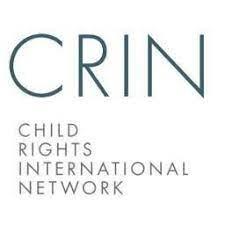
Access to justice for children’s environmental rights — CRIN
What is the issue?
Children and young people have been at the forefront of environmental activism in recent years, from protesting to pressing their governments to tackle the climate crisis, to bringing legal challenges against those who have polluted the environment. This isn’t just a question of protecting a planet they will inherit, but fighting for their rights today.
Access to justice is an essential part of this fight. For children’s rights to be more than a promise, there must be a way for those rights to be enforced. This is true for environmental rights, as for all others.
What is CRIN doing?
We have started this project by conducting research on access to justice for children for their environmental rights focusing in 43 countries around the world. We are looking at how the law can better protect children’s environmental rights, how children can access the courts in environmental cases and what remedies courts can impose to protect these rights. Beyond this, we are also looking at how these countries protect - or fail to protect - children’s civil and political rights so that they are able to protest and campaign on environmental issues.
But research is not enough. We will be using this research to push for the change needed to make children’s environmental rights enforceable, building on our climate justice strategy. We also want to translate this research into tools that children and young people can use directly in their campaigning.
Why Climate Justice?
Climate justice sees the planetary crisis through a human rights lens. Depending on location, economic status, race, gender and age, the impact of the crisis does not affect everyone equally.
Climate justice means we focus on those most affected by and vulnerable to climate impacts and builds on existing civil rights movements.
With the growing number of children and youth protesting against climate inaction around the world, there is a deepening understanding of intergenerational justice and children’s rights in this field. Yet under-18s are almost entirely left out of decision-making, despite being more awake to the problem than most adults.
Justice and accountability are not up for negotiation. There will be no sustainable future without justice at its core. Our work in this area will identify where responsibility lies and what can be done to ensure justice is accessible for children and their representatives.
A collaborative project
If we’re to tackle the climate crisis before it’s too late, we all need to work together, bringing the skills and experience we all have. This is why we want to make this project as collaborative as possible from the beginning. We are working with legal researchers around the world and we will be sharing our research soon under creative commons licence so that everyone is free to use what the project produces in their own work.
We’d like to work with anyone who shares our aims of a world where children can rely on the justice system to enforce their environmental rights, whether researchers or lawyers who want to share their expertise or campaigners who want to work together towards this aim.
If you would like to hear more about the project, sign-up for updates or get involved, please contact us.
Resources:
-
Issue pages: Access to justice for children and children’s rights and the environment
-
Case study: Combating climate change with the public trust doctrine
-
UN submission: Environmental harm and children’s access to justice
-
Climate litigation: A compilation of global climate change litigation, the children’s complaint before the Committee on the Rights of the Child and CRIN’s case law database.
-
Articles: Climate change and human rights - Can the courts fix it? and Lawyers are going to court to stop climate change. And it might just work










Add new comment